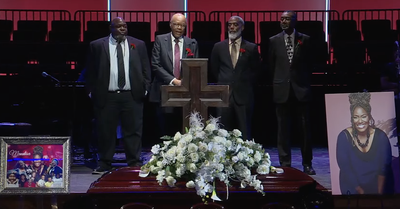July 21, 2008
ISTANBUL – A Pakistani couple has appealed a court decision to award custody of their two daughters, 10 and 13, to the children’s alleged kidnappers. The court based its custody decision on the girls’ conversion to Islam.
Judge Main Naeem Sardar ruled Saturday (July 12) that Saba Masih, 13, and Aneela Masih, 10, had become Muslims, invalidating their Christian parents’ right to legal guardianship.
“He said that because the parents are Christians and because the girls told the court that they adopted Islam, their relationship has ceased,” lawyer Rashid Rehman of the Human Rights Commission of Pakistan (HRCP) told Compass. Under a common interpretation of Islamic law, a Christian cannot have custody of a Muslim.
The sisters appeared in a Muzaffargarh District and Sessions court in the company of 16 Muslim men and were given five minutes to testify that their conversion was genuine, human rights activist Ashfaq Fateh said. It was the first time that Younis Masih and his wife had seen their daughters since they disappeared on June 26 while traveling to their uncle’s nearby home in Sarwar Shaheed, 150 miles southwest of Lahore.
Saba Masih told the court that she and her younger sister had been inspired by Islam and had run away to Muhammed Arif Bajwa, whom the parents say kidnapped the children near their uncle’s home. Stating her age as 17, Saba Masih said she had changed her name to Fatma Bibi, a traditional Muslim name, and married a Muslim man, Amjad Ali. Under Pakistani law a woman can marry without the approval of legal guardians at the age of 16.
“The judge did not give me even a minute to speak with my daughters,” Younis Masih told rights activist Ashfaq Fateh. “My girls have been with these men for the last 20 days; they have pressured them to change their minds.”
The children’s parents were neither allowed to testify nor submit birth certificates and school records as evidence of the girls’ true ages.
“Will she herself determine what her age is?” said lawyer Rehman, who appealed the case to the Lahore High Court’s branch in Multan city.
Justice Saghir Ahmed today summoned the two children and Saba Masih’s new husband Ali to an initial appeal hearing set for July 29. Rehman said he believed the court would only take into consideration the fact that the girls are minors and therefore legally belong with their mother.
After his two daughters disappeared last month, Younis Masih was summoned to the local police station on June 28. Muhammad Arif Bajwa and Ali had registered a case with police for custody of Masih’s daughters based on their conversion to Islam.
Station House Officer Imtiaz Chagwani refused the father’s request to register a kidnapping case.
Muzaffargarh SP Investigation official Chaudry Tajeen said he was unable to comment on why Chagwani refused to file the complaint when Compass contacted him yesterday. He confirmed that Chagwani has since been replaced by Munawar Gulzar at the Sarwar Shaheed police station, but was unavailable when Compass called back for further details.
Younis Masih fears that his daughters’ new guardians have sexually abused them and claims that the men run a prostitution ring. Lawyer Rehman said that though there is no hard evidence to prove these claims, the father’s fears are legitimate.
“Contracting marriage with a minor girl could mean that they want to have control of her with the intention of child prostitution or something else…” the lawyer said.
According to the HRCP’s most recent annual report on human rights in Pakistan, “crime against children, especially kidnapping,” remains a serious problem. In Muzaffargarh district, where Aneela and Saba Masih lived, 24 children were freed in March 2007 from a “mini-jail” at an Islamic seminary, where they had been tortured and sodomized, the HRCP reported.
According to Rehman, religious minorities are an easy target for kidnappers both because they are typically underprivileged and because of religious bias against them.
“Local police and judges have their subconscious mindset that if you help Muslims [in such cases], it’s a very noble cause and a very religious cause,” the lawyer said.
Christians make up less than 2 percent of Pakistan’s 168 million citizens.
Copyright 2008 Compass Direct News










